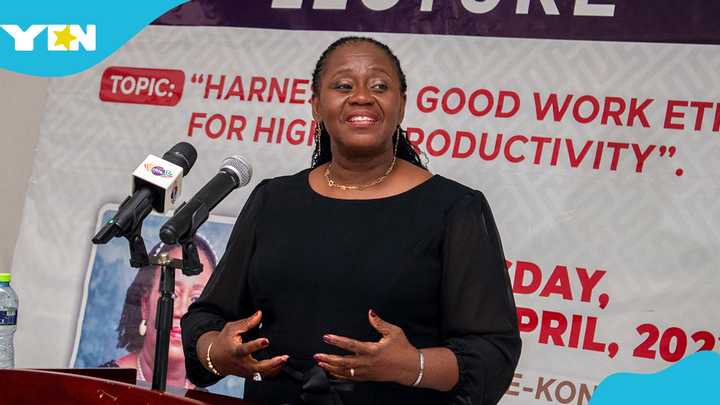The ECOWAS Court of Justice has dismissed former Chief Justice Gertrude Torkonoo’s application seeking temporary prohibition orders to halt the work of the committee that investigated her removal from office.
Don’t miss out! Get your daily dose of sports news straight to your phone. Join YEN’s Sports News channel on WhatsApp now!
The Court also rejected a preliminary objection from the government of Ghana, which argued that the regional court lacked jurisdiction to hear the case.

Deputy Attorney General Justice Srem-Sai provided some updates, saying the court was satisfied that the applicant did not demonstrate the existence of an imminent or exceptional circumstance that would justify the urgency of the application filed almost 3 months after the act complained of.
Torkonoo applied after the President constituted a committee chaired by Justice Gabriel Scott Pwamang to probe petitions that eventually led to her removal and the swearing-in of her successor, Chief Justice Paul Baffoe-Bonnie.
In its ruling on Wednesday, November 19, 2025, the ECOWAS Court held that although the former Chief Justice had established a prima facie case alleging human rights violations, she failed to demonstrate the urgency required for the Court to issue temporary orders stopping the committee’s proceedings.
The judges noted that despite being suspended on April 22, 2025, and fully aware of the ongoing processes, she waited three months before filing her motion—undermining her own claims of imminent or irreparable harm.
As a result, the request for a prohibition order was dismissed.
The Court also addressed a separate objection by Ghana’s Attorney General, who argued that the matter was sub judice because related issues were before a Ghanaian court. The ECOWAS Court disagreed, describing the objection as “misplaced.”
According to the ruling, the application before the regional court concerns alleged violations of Torkonoo’s human rights during the suspension and removal process, and does not seek to review or overturn any decision of a Ghanaian court.
The judges further clarified that her claim only applied when a matter is awaiting judgment elsewhere.
The Court concluded that it has jurisdiction to determine the substantive matter, having established the existence of a prima facie human rights claim. It therefore declared the main application admissible and directed the Attorney General to file a response.